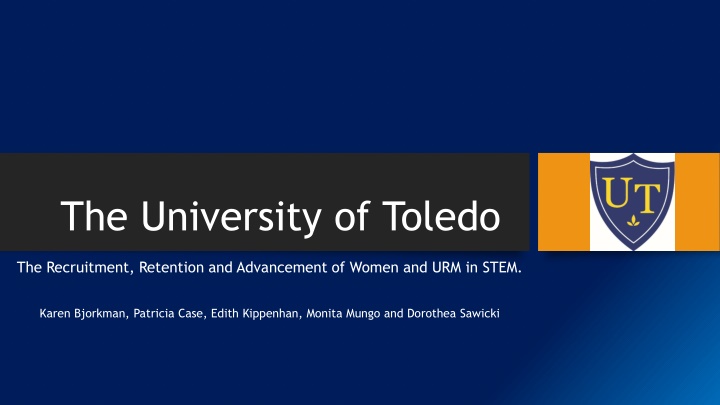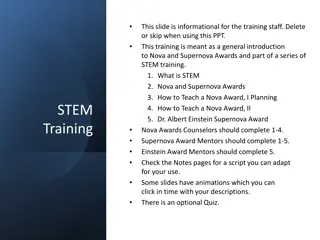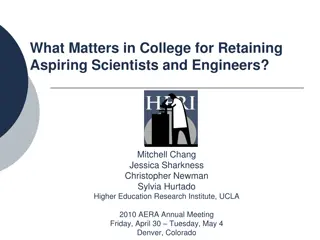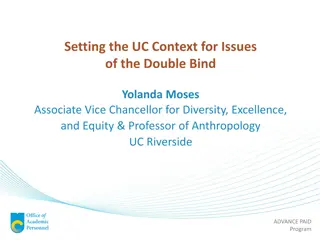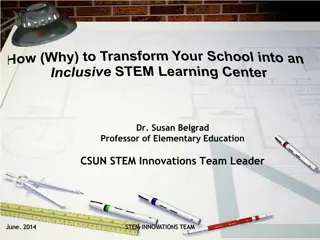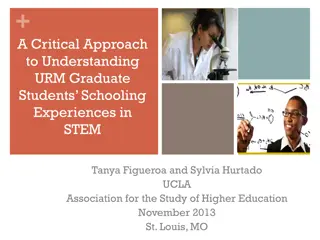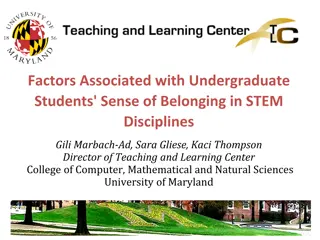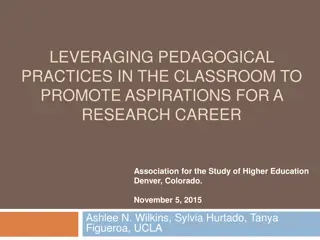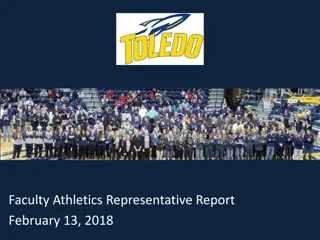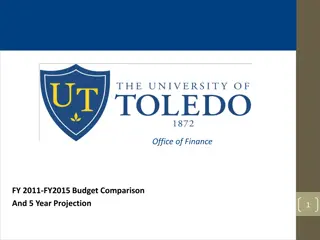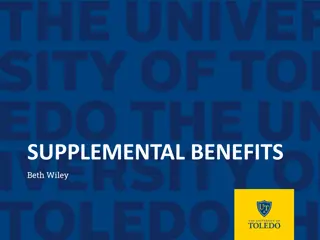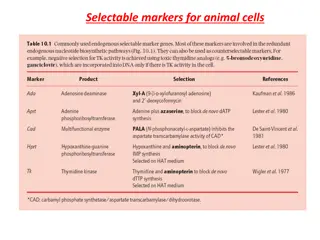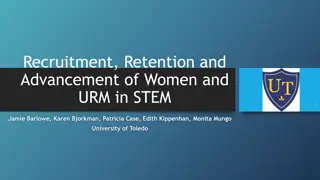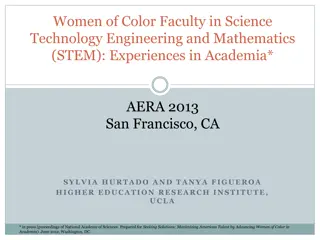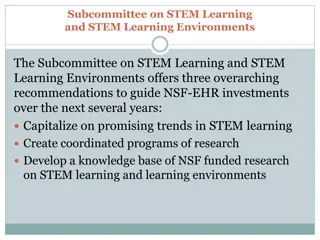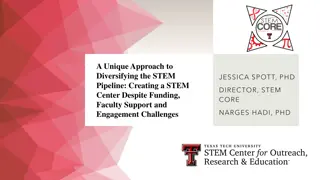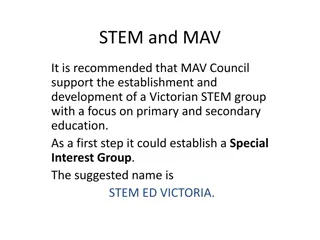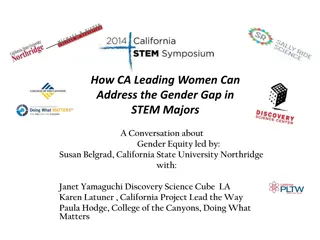Advancing Women and URM in STEM: University of Toledo Project Overview
University of Toledo's project focuses on the Recruitment, Retention, and Advancement of Women and URM in STEM fields. They conducted a climate study, organized mentoring workshops, and are planning activities like new faculty receptions and article submissions. The study revealed gender biases, stress levels, and barriers faced by women faculty and highlighted the need for formal mentoring programs and support for work-life balance. Qualitative data emphasized the challenges women face in balancing career and family responsibilities, including perceptions of maternity leave and tenure clock pauses. Proposed activities aim to enhance mentorship opportunities and survey STEM faculty for gender differences in perceptions and outcomes.
Download Presentation

Please find below an Image/Link to download the presentation.
The content on the website is provided AS IS for your information and personal use only. It may not be sold, licensed, or shared on other websites without obtaining consent from the author.If you encounter any issues during the download, it is possible that the publisher has removed the file from their server.
You are allowed to download the files provided on this website for personal or commercial use, subject to the condition that they are used lawfully. All files are the property of their respective owners.
The content on the website is provided AS IS for your information and personal use only. It may not be sold, licensed, or shared on other websites without obtaining consent from the author.
E N D
Presentation Transcript
The University of Toledo The Recruitment, Retention and Advancement of Women and URM in STEM. Karen Bjorkman, Patricia Case, Edith Kippenhan, Monita Mungo and Dorothea Sawicki
Summary of Project Climate study conducted in Spring 2016. Mentoring Circle Workshops held in collaboration with UT-AWIS Grant submitted: Retention, Recruitment and Advancement of Women and URM in STEM. (Under Review) Created IDEAL-N website (http://www.utoledo.edu/offices/provost/idealn) Began Twitter feed: @UToledo_IdealN (14 followers) Collaborative picnic with BGSU IDEAL-N and AWIS Focus groups held March 2017
Planned Activities New faculty reception Continued focus groups to increase participation Article submission (late summer/early fall)
Proposed Activities Mentoring circles and repeat workshops to train facilitators in order to expand reach Quantitative survey to STEM faculty only to measure gender differences in perceptions and outcomes. If funded, seminar highlighting women in STEM at UT (to include UT students and outreach to local high schools)
Results of Climate Study Climate study showed that very little formal mentoring takes place at UT. Women reported higher levels of stress than men. They were less satisfied with start up funds and reported less time for scholarly work than men. URM reported high levels of racial/ethnic bias in general (~45-60%) and women reported higher levels than men. Approximately 1/3 of female faculty reported gender bias, negative attitudes towards women with children and lower access to resources.
Themes from qualitative data Women that were established in their careers were delighted to be asked about barriers to success and mentoring needs. Thought we need to have a formal mentoring program for all because gender specific programs send the message that women can t make it on their own . At least one established professor indicated that women in science should not have children if they want a career. All felt that having families was not encouraged.
Themes from qualitative data (cont) Less established professors think that maternity leave is a nice gesture, but useless, especially stopping the tenure clock. Those with labs can t take a leave or stop their clock. Fear of being stigmatized by the mommy track if they stop the clock. Believe that the two leave limit is a means of controlling family size. Argue that the leave is biased to force mom to take the leave over dad because of dual couple restrictions.
Themes from qualitative data (cont) Lecturers/instructors are viewed as cannon fodder . No professional development incentives or time to stay professionally active. Perceived gender bias in some colleges and ethnicity bias in others. Some made decisions not to pursue Ph.D.s or tenure tracks because they wanted a family .
Themes from qualitative data (cont) Mentoring would be welcome by less established, but it is viewed as organic and occurring naturally. Can t be forced. Barriers are viewed more in terms of age and not gender. Younger male colleagues are welcoming, collegial and provide mentoring. Older colleagues, male and female, are less approachable or invested. Older women described as bitter towards young colleagues with children.
Limitations and Future Work Small samples Currently lacking nursing and engineering faculty for focus groups. Mentoring circles appear to be an attractive option.
